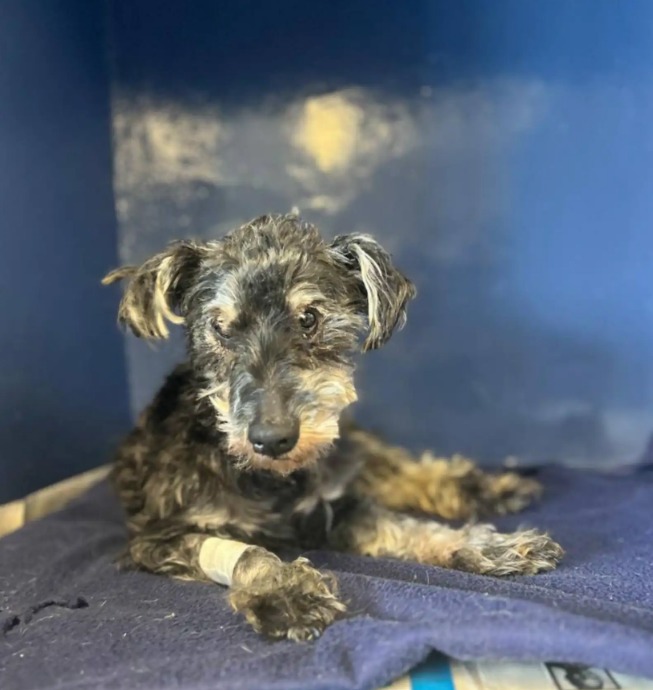
He wandered for thirteen years.
Fifteen years old now, tiny in size but vast in spirit, the miniature schnauzer’s life flickered between rough survival and distant memory.
His name, which his family had first given him, was Karnallie—but when Tim Shaw found him in Cape Town, bedraggled and blind with cataracts, Shaw didn’t know that yet.
What he saw first was a desperate dog darting between traffic, fur like dreadlocks, fear in every tremble.
Tim’s heart nearly stopped in his chest. He was driving to the coast with a friend when he caught sight of the little guy.
Cars barreled past. Wet road. Frantic paws. Most people would’ve kept going—too late, too complicated.
But Tim saw enough pain to know this dog deserved more. He pulled over.
The dog would not come right away. He bit, snapped, bristled—survival instincts kicking in. Tim didn’t rush.
He asked the day laborers if anyone recognized him. No one did. So Tim drove back home to fetch supplies: a laundry basket, some dog food, clothes for comfort.
When he returned hours later, soaked up in a nightgown, he coaxed the dog into something safer.
The world was asking nothing but demand. Tim offered patience.
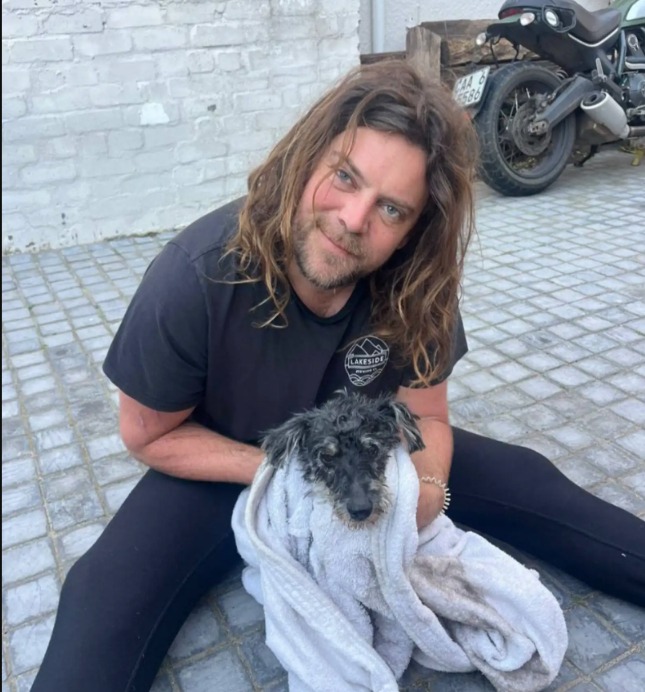
Wrapped trembling in that laundry basket, the little dog ate with urgency. Not grateful—but hungry. Not trusting—but listening.
Tim sang soft songs. Over the afternoon, as he gently trimmed the matted fur—cut away years of grime—he revealed more than a body. He revealed a soul.
And here comes the twist that slices straight into your heart: Tim took that battered pup to the vet the next day, and an assistant scanned for a microchip.
They found it. The dog, they discovered, had once had a family. Thirteen years prior, Karnallie had been stolen from his home.
They’d searched, grieved, tried to call him back. But the years stretched into silence. New pets were adopted. Life went on.
Now, here he was, ragged but alive, reunited with a name, with a story. The shelter renamed him Rufus.
They treated his wounds, delivered long-needed medical care: arthritis that pained him, wire embedded around one leg that lacerated and hurt.
They groomed. They fed. They gave him medicine. And most of all—they gave him space to heal.
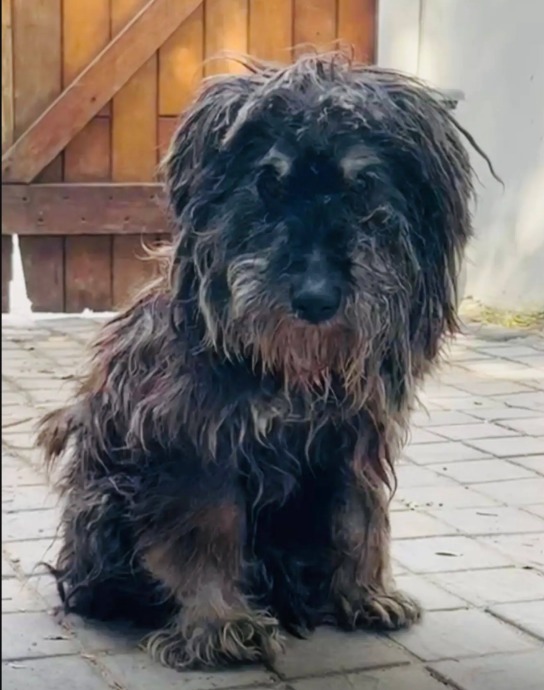
Rufus’s steps the next day were small, tentative. Yet when his fur felt lighter, and the sun touched his limp leg without causing pain, he lifted his head.
He pranced like someone rediscovering the world — like burdens had been lifted. The dreadlocked mess was gone.
He walked more like a dog who remembered what it means to exist without constant ache.
Tim didn’t ask to be a hero. He simply saw someone in need and stayed.
He didn’t erase the years—Rufus’s scars are with him—but he offered something powerful: love, patience, trust.
He said, “Rufus can live with me.” And Rufus, after thirteen long years without a home, has one.
If you ever doubt what kindness can do, remember this: sometimes rescuing isn’t a floodlight moment.
It’s the softest hand when no one else is watching. It’s the song sung when the world is loud.
It’s the turning around of a laundry basket and saying, You’re not forgotten.
Because Rufus’s story doesn’t end with being found. It begins with being seen.
And that change—seeing him—changed everything.

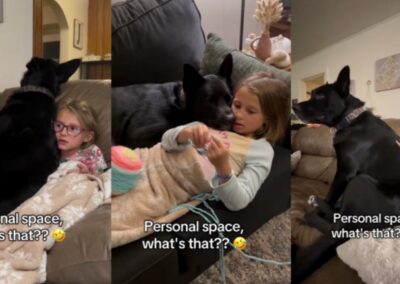
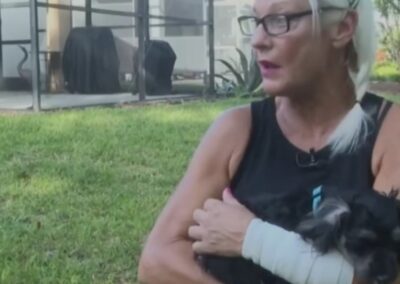

That’s a.beautiful story with a happy ending. It’s hard to believe it took thirteen years before being found, but finally someone saw him and did something about it. God Bless you for being the person who gave him back his dignity a home and love ❤️
Thank you for your sharing. I am worried that I lack creative ideas. It is your article that makes me full of hope. Thank you. But, I have a question, can you help me?
Thank you for your sharing. I am worried that I lack creative ideas. It is your article that makes me full of hope. Thank you. But, I have a question, can you help me?